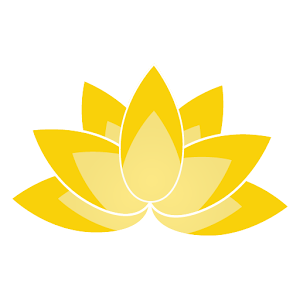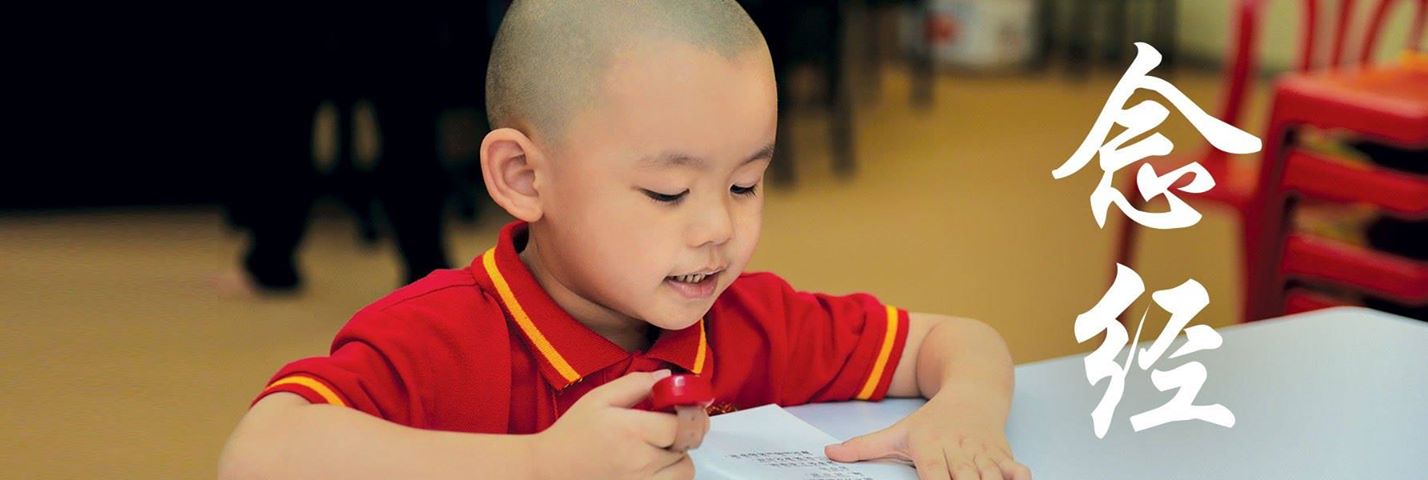Q: Master Lu has previously explained that during Chinese New Year and other important festivals and special days, we can eliminate many karmic obstacles by completing more recitations of the Eighty-Eight Buddhas Great Repentance. What is the maximum number of recitations that we can do? Do we need to complement this with the recitation of Little Houses? What should we be aware of?
A:
▪ On major festivals and special days such as Chinese New Year’s Eve, Chinese New Year, New Year’s Day (January 1st of the Gregorian calendar), the Lantern Festival, and birthdays of Buddhas and Bodhisattvas (including Birthdays, Renunciation Days, Enlightenment Days), we can complete more recitations of the Eighty-Eight Buddhas Great Repentance than usual to repent and eliminate our karmic obstacles. On these days, many Buddhas, Bodhisattvas and Dharma Protectors will be in touch with us, hence many karmic obstacles can be eliminated if we increase the number of recitations of the Eighty-Eight Buddhas Great Repentance.
▪ On Chinese New Year’s Eve and Chinese New Year, we can recite the Eighty-Eight Buddhas Great Repentance a maximum of 87 times during these two days. That is, the sum of the recitations for these two days should not be over 87. Do not recite it 87 times for each of the two days, otherwise karmic obstacles will be activated. Other special days such as New Year’s Day (January 1st of the Gregorian calendar), the Lantern Festival, the Mid-Autumn Festival and birthdays of Buddhas and Bodhisattvas, we can recite the Eighty-Eight Buddhas Great Repentance no more than 27 times per day. On the Ullambana Festival (also known as the Zhong Yuan Festival, or the Hungry Ghost Festival, the 15th day of the 7th lunar month), we should recite it no more than 21 times. On the 1st and 15th day of each lunar month, we can recite it no more than 13 times per day.
▪ Below are the dates on which we can complete more recitations of the Eighty-Eight Buddhas Great Repentance:
▪ The 1st day of the 1st lunar month, Maitreya Bodhisattva’s Birthday – 87 times (you can start reciting the Eighty-Eight Buddhas Great Repentance on Chinese New Year’s Eve, and complete the 87 times during these two days);
▪ The 8th day of the 2nd lunar month, Shakyamuni Buddha’s Renunciation Day – 27 times;
▪ The 15th day of the 2nd lunar month, Shakyamuni Buddha’s Nirvana Day – 27 times;
▪ The 19th day of the 2nd lunar month, Guan Yin Bodhisattva’s Birthday – 27 times;
▪ The 8th day of the 4th lunar month, Shakyamuni Buddha’s Birthday – 27 times;
▪ The 19th day of the 6th lunar month, Guan Yin Bodhisattva’s Enlightenment Day – 27 times;
▪ The 13th day of the 7th lunar month, Mahasthamaprapta Bodhisattva’s Birthday– 27 times;
▪ The 30th day of the 7th lunar month, Kṣitigarbha (Earth Store) Bodhisattva’s Birthday – 27 times;
▪ The 22nd day of the 8th lunar month, Dipankara Buddha’s Birthday – 27 times;
▪ The 19th day of the 9th lunar month, Guan Yin Bodhisattva’s Renunciation Day – 27 times;
▪ The 17th day of the 11th lunar month, Amitabha Buddha’s Birthday – 27 times;
▪ The 8th day of the 12th lunar month, Shakyamuni Buddha’s Enlightenment Day – 27 times.
▪ Below are other special dates on which we can complete more recitations of the Eighty-Eight Buddhas Great Repentance:
▪ From December leading up to Chinese New Year, every 1st and 15th day of each lunar month – 21 times;
▪ December 29th, 30th and 31st; January 2nd and 3rd (per Gregorian calendar) – 21 times;
▪ New Year’s Day (January 1st per Gregorian calendar) – 27 times;
▪ The 29th day of the 12th lunar month – 21 times;
▪ The 30th day of the 12th lunar month (i.e. Chinese New Year’s Eve) and the 1st day of the 1st lunar month (i.e. Chinese New Year) – 87 times in total;
Note: In the special case where there is no 30th day in the 12th lunar month of that year, you can recite it 87 times in total over the 29th day and the Chinese New Year. Accordingly, you can recite it 21 times on the 28th day of the 12th lunar month).
▪ The 2nd day, and 3rd day of the 1st lunar month– 21 times each;
▪ The 15th day of the 1st lunar month (i.e. the Lantern Festival) –27 times;
▪ The 15th day of the 7th lunar month (i.e. the Ullambana Festival) – 21 times;
▪ The 15th day of the 8th lunar month (i.e. the Mid-Autumn Festival) – 27 times;
▪ The 1st and 15th days of each lunar month – 13 times.
▪ During the period of Master Lu’s Buddhist conference and public talks, you can recite the Eighty-Eight Buddhas Great Repentance up to 49 times per day. If you are to burn the Self-Cultivation Record Forms of the Eighty-Eight Buddhas Great Repentance, the maximum number of recitations is 21 per day. Refrain from reciting it too many times, otherwise karmic obstacles can be easily activated.
▪ During the period of Master Lu’s Buddhist conference and public talks, as long as there are still people making incense offerings at the Guan Yin Hall (the prayer room), you can continue to recite the Eighty-Eight Buddhas Great Repentance in the room around the clock. Note that you should avoid reciting the Eighty-Eight Buddhas Great Repentance after 10pm in the area outside the Guan Yin Hall, such as the hallway. However, it can be recited between 5am and 10pm in this area.
▪ The above guidelines on the number of recitations already take into account the part included in your daily recitations. Once you have completed the maximum number of recitations on the day (including burning the Self-Cultivation Record Forms), refrain from additional recitations, whether it be for everyday use (daily recitation) or for self-cultivation purposes. Otherwise, you are very likely to activate your karmic obstacles.
▪ On special occasions such as Buddhas’ birthdays, New Year’s Day, Chinese New Year, the Lantern Festival, the Ullambana Festival, and the Mid-Autumn Festival, if you have a Buddhist altar in your home, you can offer the “First Incense”, and while the incense is burning, recite Buddhist scriptures all night until morning. On days other than those mentioned above, offer incense and perform recitations as usual.
On those days when you can offer the First Incense, if you have a Buddhist altar in your home, you can recite the Eighty-Eight Buddhas Great Repentance all night until morning. However, outside these dates, including the 1st and 15th days of each lunar month, avoid reciting it between 10pm and 5am. If you do not have a Buddhist altar in your home, even on those days when you can offer the First Incense, avoid reciting the Eighty-Eight Buddhas Great Repentance all night. You should follow the usual practice to offer the “Heart Incense” and perform recitations.
▪ The recitations of the Eighty-Eight Buddhas Great Repentance on these days are best targeted towards the repentance of a specific wrongdoing committed in this life, such as backstabbing or causing harm behind one’s back, viewing inappropriate or obscene materials, films, or books and so forth. Once you have recited the Eighty-Eight Buddhas Great Repentance and sincerely repent your wrongdoing, your karmic obstacles can then be directly eliminated, and you will not need to worry about your karmic obstacles being activated. Hence, there is no need to recite Little Houses in tandem with these recitations.
In cases where you do not have a specific wrongdoing to repent, you can make a general statement by saying the following prayer: “May the Greatly Merciful and Greatly Compassionate Guan Yin Bodhisattva protect and bless me,
▪ The recitations of the Eighty-Eight Buddhas Great Repentance on these special days are generally targeted towards the repentance of a specific wrongdoing committed in the present life. This is less likely to activate karmic obstacles. However, for severe karmic obstacles, reciting the Eighty-Eight Buddhas Great Repentance alone may not be able to eliminate them. Therefore, it is highly recommended that one recites Little Houses in tandem with these recitations.
▪ If you say a general prayer to eliminate your karmic obstacles, or to eliminate certain types of karmic obstacles accumulated from past lives, the karmic obstacles are likely to be activated. For example, if you say a general prayer to repent your karmic obstacles, to repent the karmic obstacles regarding your marriage or relationships, or a specific illness, the karmic obstacles are very likely to be activated. It is because such issues are usually caused by karmic obstacles in your past lives. It is very difficult to completely eliminate significant negative karma like these simply through reciting the Eighty-Eight Buddhas Great Repentance dozens of times in one sitting. Therefore, in these circumstances, one must recite Little Houses along with these recitations.
▪ To be on the safe side, when you are doing more recitations of the Eighty-Eight Buddhas Great Repentance, you can burn more Little Houses to eliminate karmic obstacles more effectively depending upon your own circumstances.
▪ If you do not have a Buddhist altar in your home, you will have to offer the Heart Incense and pray to Guan Yin Bodhisattva first before you can use the above method to recite the Eighty-Eight Buddhas Great Repentance. You can also pay respect and perform prostrations before a statue or image of Guan Yin Bodhisattva at a friend’s house if they have a Buddhist altar or at a temple nearby. After doing so, you could choose to perform your recitation elsewhere. If you do not have a Buddhist altar in your home and you divide your recitation of the Eighty-Eight Buddhas Great Repentance into several sessions during a day, then you have to begin each session by offering the Heart Incense before commencing your recitations.
If you have a Buddhist altar in your home but have not made an actual incense offering since you are away from home, then you will also need to offer the Heart Incense before commencing recitations.
▪ It is best to complete your recitations of the Eighty-Eight Buddhas Great Repentanceon these special days and to repent to the Buddhas and Bodhisattvas directly as this will achieve the best results. If you are truly unable to complete your recitations of the Eighty-Eight Buddhas Great Repentance on the day, you could burn the Self-Cultivation Record Forms of the Eighty-Eight Buddhas Great Repentancethat you have prepared beforehand instead. For example, on the 1st or 15th day of the lunar month, you can use the form templates that contain 9 or 12 recitations of the Eighty-Eight Buddhas Great Repentance. Complete these prior to the special days. Take out the forms and burn them if you are unable to complete all the recitations on those days. You can then make up the shortfall by doing additional recitations on the day. The template for Self-Cultivation Record Forms can be downloaded from the official website.
On Chinese New Year’s Eve and Chinese New Year, you can use the template that contains 81 (or less) recitations of the Eighty-Eight Buddhas Great Repentance. For major Buddha’s birthdays, you could use the templates that contain 27 (or less) recitations. Avoid burning Self-Cultivation Record Forms containing a greater number of recitations than the corresponding maximum number on the day.
▪ Before you burn these Self-Cultivation Record Forms, you must make incense offerings at the Buddhist altar. If you do not have a Buddhist altar, you must not burn the Self-Cultivation Record Forms of the Eighty-Eight Buddhas Great Repentance.
▪ Generally speaking, from the middle of December (as per the Gregorian Calendar) until the 15th day of the 1st lunar month, it is best to complete more recitations of the Eighty-Eight Buddhas Great Repentance to eliminate karmic obstacles. You can recite it up to 7 times per day (including the part of your daily recitations). This can be done even without a Buddhist altar.
▪ On these special days, you can also recite the Eighty-Eight Buddhas Great Repentance for your family members. But again, the corresponding daily limits should not be exceeded. This should be completed under the condition that they are also practising Buddhism and reciting sutras and mantras. You should communicate well in advance with the family member, and recite the Eighty-Eight Buddhas Great Repentance for them only if they understand and agree to it.
If the family members do not have a basic foundation, do not believe in Buddhism and do not perform recitations or recite Little Houses, then your recitations on their behalf will not be effective. It is best to recite for yourself and repent sincerely. On these special days, avoid doing a large number of recitations of the Eighty-Eight Buddhas Great Repentancefor several people.
▪ It is always good to recite and burn more Little Houses on major festivals. To be on the safe side, when you are doing more recitations of the Eighty-Eight Buddhas Great Repentance, you should also burn more Little Houses.
▪ Those who are pregnant, or are within the one-month period of postnatal care, should not recite the Eighty-Eight Buddhas Great Repentance more than 7 times per day (including the part of their daily recitations) on these special days under any circumstances.
▪ Children aged 5 and above can follow the aforementioned methods for recitations. Before commencing recitations, they can say the following prayer: “May the Greatly Merciful and Greatly Compassionate Guan Yin Bodhisattva protect and bless me, <his/her full name>, help me to resolve karmic conflicts, and eliminate karmic obstacles.”
Children under 12 years old should not recite it more than 7 times (including the part of their daily recitations). They can start reciting it for self-cultivation purposes when they reach 12 years of age.
Only those over 18 years of age can recite it 87 times in total over Chinese New Year’s Eve and Chinese New Year. For those over 12 and under 18, they can recite it up to 49 times in total over these two days.



